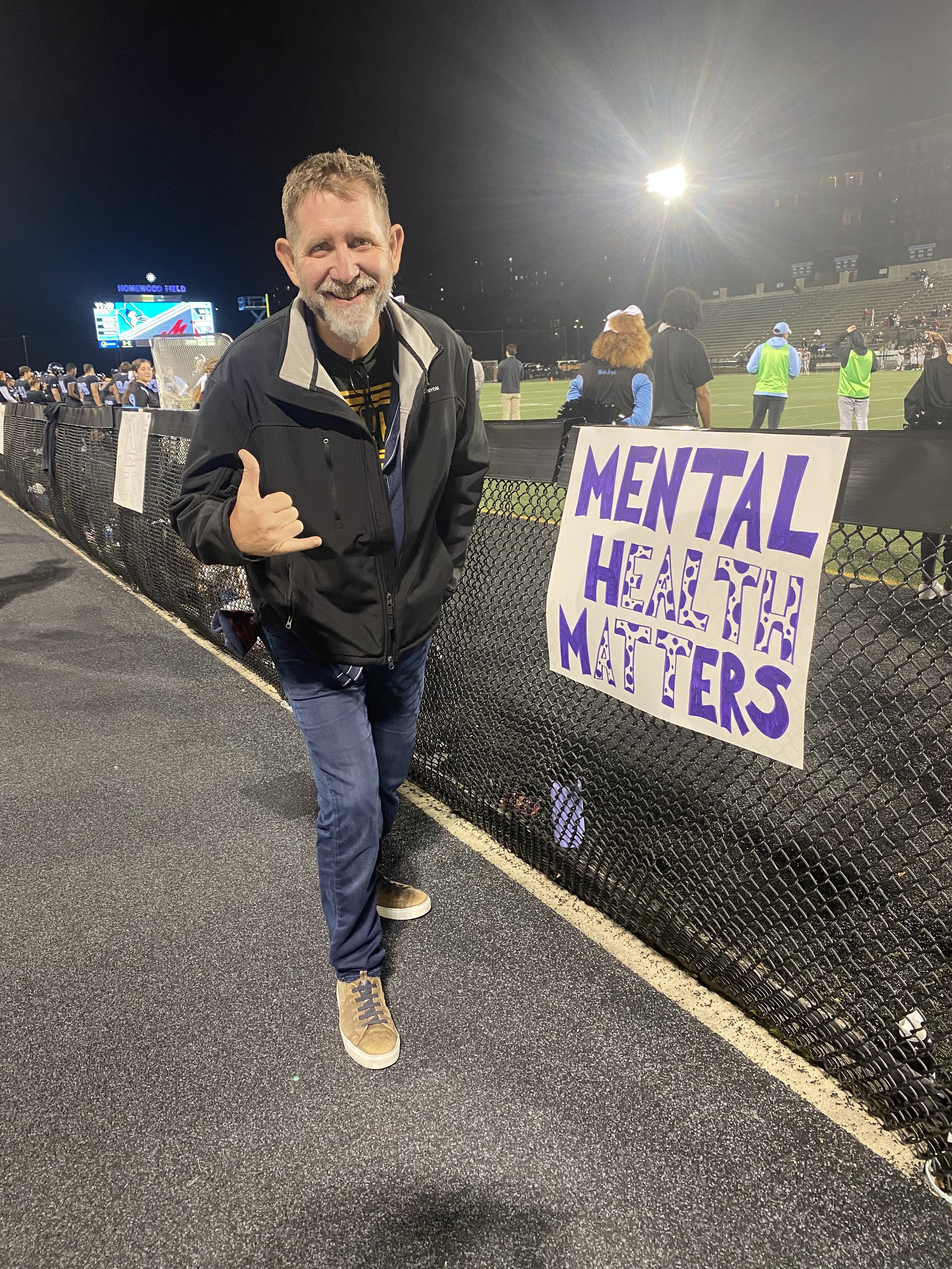
The Day After Father’s Day
In a world that often feels unhinged, raising children is both an act of faith and a vote for the future. It’s a bold and optimistic belief that love will ultimately win.

Dr. Mara Mesa!
I’m proud to celebrate Dr. Mara Mesa on her recent achievement—earning her Doctorate in Community Care and Traumatology from Liberty University! It’s been a pleasure to know Mara over the years.
I still remember her days as a student at our counseling center in Port Orange, where her heart for helping others and her natural gift for connecting with people stood out from the very beginning.

When Addiction Becomes a Blessing
For many of us, recovery doesn’t just help us regain control. It reveals that we never had control to begin with. Addiction confronts us with a profound spiritual truth: we are not self-sufficient. In our brokenness, we come face-to-face with our deep need for God—a God who doesn’t just show love, but who is love itself.

Moments of Truth in Counseling: How Quality Service Shapes the Client Experience
Every interaction with your client is a chance to build trust and connection. Being mindful of these small but meaningful Moments of Truth strengthens your practice and your reputation. The term “Moments of Truth” was originally coined by Jan Carlzon, an airline executive with SAS Airlines who noticed that a customer’s experience was shaped in key moments—often short and simple—that left a lasting impression. And I noticed early on in counseling that those same type of moments show up in private practice, too.

Failure Is Not Failure If We Use It as an Opportunity to Learn
Mistakes are an inevitable part of life’s journey, especially in business. The best way to handle a mistake is to see it as an opportunity to learn. After all, failure isn’t truly failure if we use it to grow.

The Profit Mindset in Counseling: Balancing Business and Purpose
As counselors, we got into this field to help people — to support healing, growth, and transformation. But to keep making a difference, we also have to think like business owners. Embracing a profit mindset doesn’t mean losing sight of our purpose; it means creating a sustainable practice that allows us to continue helping others. Let’s talk about why balancing purpose and profit is essential for a thriving counseling practice. #CounselingBusiness #MentalHealth #ProfitMindset

Your Authentic Self is Revealed in the Moments You Choose Love.
If you’re struggling to reconcile past mistakes or wrestling with guilt, remind yourself that these moments don’t define you. Your authentic self is revealed in the moments when you choose love. Return to love. Embracing this truth can help you move past shame and focus on growing toward your true purpose.

The Power of Checking In: How Small Questions Increase Client Retention
I’ve learned that regularly checking in with clients—asking questions like, “Is counseling still helpful?” or “Are we working on what matters most to you right now?”—can change the course of therapy in meaningful ways. These aren’t throwaway moments. They’re invitations. They tell the client, your voice matters most, and this work belongs to you.

You Matter, Your Health Matters, and It’s Worth Protecting.
10 Pillars of Self-Care for Mental Health Professionals. Working in mental health is meaningful—but it’s also demanding. You walk with people through their issues and still try to show up at home with something left in the tank. Over time, the weight can catch up with you. That’s why self-care isn’t about luxury or comfort—it’s about staying in the game for the long haul.

Don’t Cut Back on Promotions—Raise Your Rates Instead
When you pause your marketing you risk stalling the strength of your pricing and reputation. Many counselors assume that a full schedule means it’s time to pull back on promotion. But marketing isn’t just about filling your calendar today—it’s about building your brand for tomorrow. It’s how you reinforce trust and ensure that when someone is ready to reach out, your practice is the one that comes to mind.

When Resentment Kills Intimacy: How Emotional Distance Impacts Sexual Desire
Sexual desire in long-term relationships depends heavily on emotional connection. When someone feels criticized or ignored, they often pull back emotionally. That creates distance. And once emotional intimacy starts to fade, physical intimacy often follows.

Alternate Nose Breathing: It’s good for your client, and it’s good for you.
Alternate nose breathing isn’t complicated. It just asks you to breathe with intention—one side at a time. It creates a rhythm that interrupts the spiral. It anchors you back in your body, back in the moment. It’s for clients and counselors.

Your Future Client is Looking for a Specialist
The desire for a counselor or therapist to serve broadly—and fill their schedule—comes from a natural place. But here’s something important to remember: Clients don’t look for generalists. They are looking for a specialist.

Your Health “Is” Your Business
Your health is your business. If you’re a counselor in private practice, your most valuable resource isn’t your degree, your office, or your theoretical orientation—it’s you. Your energy, clarity, and presence are what people are coming to you for. When your body is run down or your mind feels foggy, everything else suffers Moving your body consistently—whether it’s walking, lifting, swimming, cycling, or stretching—helps you stay sharp and steady.

Land Snorkeling: A Surprising Self-Care Practice for You & Other Counselors
Land Snorkeling, self care for mental health professionals. Think of snorkeling—but on land. You’re moving slowly through a natural space like a park, a trail, or even your own backyard, paying close attention to the world around you. You’re not trying to get anywhere or hit a step goal. You’re simply noticing. The color of the leaves. The feel of the breeze. The way sunlight filters through the branches.

Help Your Next Client Think Better, Not Just Feel Better
Therapy is a space where clients can slow down and take a look at their inner world. Not just what they feel, but what they’re telling themselves. That shift—pausing to consider what am I thinking?—can be the start of real change.

Understanding Client Motivations and Expectation
Many clients come in saying they want help with anxiety, depression, or trauma. And while these are valid and important concerns, beneath the surface there’s usually a relational theme. They want to repair their marriage. They want to be a more patient parent. They want to stop pushing people away. They want to feel connected again. Understanding these underlying motives is key to doing meaningful therapeutic work.

Life Doesn’t Move In Straight Lines - Thoughts on Client Retention
A client once told me that what kept her coming back wasn’t just the insights she gained, but the feeling that she mattered—that she was remembered and cared for even between sessions. That stuck with me. It reminded me that the client experience begins before they ever sit on the couch.

Why Social Media Still Matters for Your Counseling Practice
Sometimes it’s tempting to think social media doesn’t really matter anymore—especially in a profession like counseling. After all, therapy is about deep connection, not quick posts and scrolling feeds. But for today’s mental health practices, social media still plays a crucial role in reaching the people who need help the most.